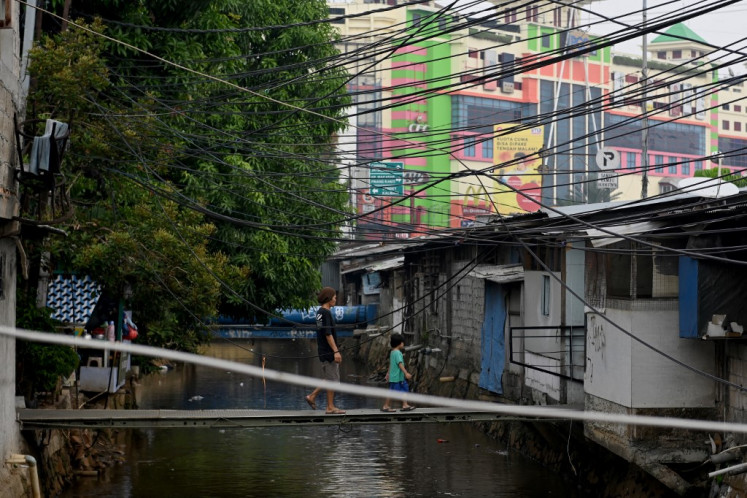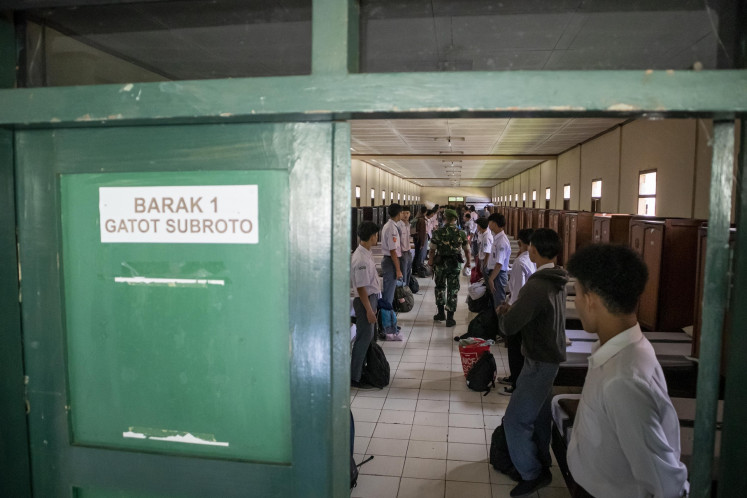Landlines dying out in mobile era
Jakartans are now getting used to exchanging phone numbers or BlackBerry pins rather than their landline numbers
Change text size
Gift Premium Articles
to Anyone

J
akartans are now getting used to exchanging phone numbers or BlackBerry pins rather than their landline numbers.
Thirty-four-year-old Mia said that when she moved into her house in Serpong, Tangerang, two years ago she decided not to install a landline connection because she already had a cellular phone, BlackBerry and CDMA cell phone.
“We’re even more reachable and the rate is not far different from a fixed line,” she said.
She said that since she spend most of her time in the office and traveling around the city, she felt more connected relying on her cell phones.
“My neighbors and I are exchanging mobile phone numbers or BlackBerry pins instead of home phone number,” she said.
She said she might consider installing a landline in her house when she had retired, and spent more time at home.
Irini Ira, who has a landline connection installed in her house in Tebet, South Jakarta, says she prefers to use her mobile phones due to their flexibility.
“I only use the landline when I’m out [of credit] on my mobile phone or if I want to make a delivery order,” she said.
In the last few years the number of new landline subscribers has been steadily decreasing. State-owned telecommunications company PT Telkom said that last year the number of its landline customers declined to 8.4 million from 8.7 million.
“Even though the decreasing number of customers is not really high, the use of the cable lines has shrunk significantly,” PT Telkom vice president of public relations, Edi Kurnia, told The Jakarta Post on Wednesday.
The company has seen its revenue from landline subscribers steadily decrease over the last few years, by 18 percent in 2008, 16 percent in 2009 and 6 percent in 2010. He refused to disclose figures.
He said the tendency for the public to prefer using cellular phones had affected the decline.
The company has introduced programs to encourage people to keep their landlines.
“First we offer our consumers fixed bill and points reward programs,” Edi Kurnia said.
The cost of the fixed phone bill, he said, was based on the average phone usage of a household over the previous 10-month period.
The points reward program, which has entered its second year, allows costumers to collect reward points based on phone and internet usage.
“If they reach a certain number of points, they have the right to participate in a lottery that we conduct once every six months,” Edi said.
The company also offers a broadband service, called Speedy, to all of its landline customers.
“We also plan to offer a Triple Play service that includes voice, picture and data services for landline phones this March,” he said.
Land-line slide: A trader places an order over the phone in a shop at Pal-merah market in West Jakarta. Over the last few years the number of landline telephone connections has been steadily decreasing, amid a growing preference for cellular phones. JP/P.J. Leo









